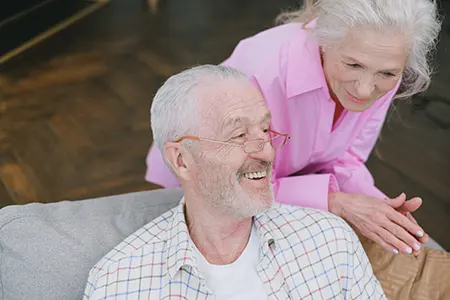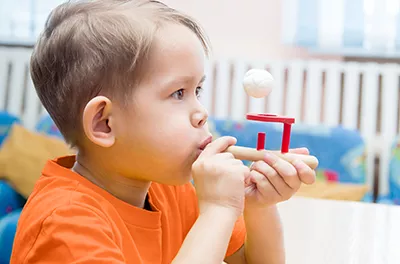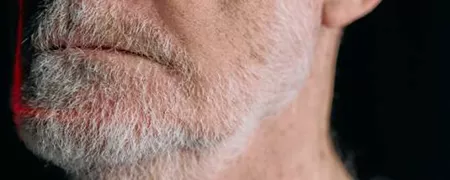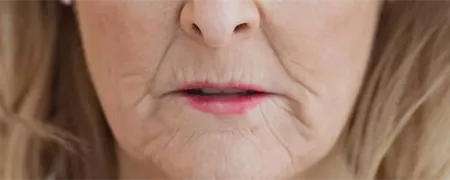
Speech Therapy in Grandville, MI
Apogee’s approach to pediatric and adult speech therapy is to embrace the individuality of each patient. Because each individual comes to us with different strengths and needs, we utilize a variety of therapeutic interventions to help each patient achieve their goals. We strive to help ensure that each patient is able to participate in the world around them to their fullest ability.

What is a Speech Language Pathologist?
Speech-Language Pathologists (SLP) help children and adults with a variety of speech and language deficits. SLPs diagnose and provide speech therapy to treat communication and swallowing disorders.
What can you expect upon referral to speech therapy?
First, the patient information and health insurance will be provided to the receptionist along with the doctor referral for speech therapy.
The speech therapist will need to evaluate the patient, and this may include reading tasks, responding to questions, interactive games (for children), a standardized test, or swallowing evaluation while eating or drinking.
The speech pathologist will identify treatment options and discuss which ones will likely benefit the patient the most.
Adult Speech Specialties
Have you or a family member recently suffered from a stroke or traumatic brain injury?
 Do you or a loved one require assistance enhancing cognitive functions such as memory, attention deficits, and problem-solving? Have you or a loved one recently been diagnosed with neurodegenerative disorders such as Parkinson’s Disease or Dementia? Do you or a loved one have difficulty swallowing?
Do you or a loved one require assistance enhancing cognitive functions such as memory, attention deficits, and problem-solving? Have you or a loved one recently been diagnosed with neurodegenerative disorders such as Parkinson’s Disease or Dementia? Do you or a loved one have difficulty swallowing?
At Apogee Therapy Center, the speech-language pathologist will evaluate and treat each patient’s ability to speak, think, problem-solve, listen, and understand the world around them. A speech-language pathologist, or SLP, can assist by providing a treatment plan that will consistently work on the aspects of communication that each patient needs to improve upon.
Click on the below items to learn more about Adult Speech Therapy at Apogee
Aphasia
Aphasia is characterized by difficulty understanding what others say, or being able to effectively communicate with others. Aphasia also may affect a person’s ability to read or write. Aphasia can be caused by a traumatic brain injury, stroke, or neurodegenerative disorder (e.g. Parkinson’s Disease, Dementia).
Apraxia
Apraxia of speech is difficulty with the motor planning required for speech production. This is often caused by an injury to the brain. Apraxia of speech makes it difficult to move your mouth, lips, and tongue in the correct way when attempting to speak.
Augmentative & Alternative Communication (AAC)
Augmentative and Alternative Communication, or AAC, is communicating using any method apart from verbal speech. People who experience difficulty speaking may use alternative ways to communicate with others. Augmentative and Alternative forms of communication can include writing in a notebook, using sign language, or using a speech-generating device.
Cognition
Difficulties with cognition can occur after injury to the brain. These injuries can be sustained traumatically (an accident) or after a stroke. Cognitive deficits can also develop in individuals who experience age related conditions and neurodegenerative diseases (e.g. Parkinson’s disease, dementia, etc). Cognitive deficits impact the following abilities:
- Focusing on tasks
- Short term memory
- Planning/organization
- Executive functioning
- Remembering names, or what someone has said recently
- Following directions
Dysarthria
Dysarthria is the weakening of the muscles in the mouth, lips, and tongue. This is caused by injury to the brain. Dysarthria can make it difficult to speak with a good rhythm, or produce the appropriate speech sounds when talking.
Dysphagia
Do you know someone who needs help with swallow strengthening, or has special dietary needs? A speech-language pathologist can help.
Dysphagia is difficulty with chewing food, and swallowing food and liquids safely. Children and adults who experience dysphagia may have trouble with this all of the time. A sign of dysphagia is coughing during or immediately after eating or drinking. There are many causes of dysphagia.
Speech therapists work closely with dietitians to help personalize diets to meet an individual’s nutritional needs while also being safe for swallowing. In addition, a speech therapist can teach specific swallowing skills to increase safety, and help with muscle strengthening to progress a patient to a higher-level diet.
Fluency & Stuttering
Fluency refers to the rhythm of speech. Fluent speech is speech produced with smoothness, and with a good pace. Frequent disruptions in the fluency of speech is called stuttering. If you, or someone you know has many interruptions in their speech, it may be caused by a stutter.
Voice
Voice is how we use our larynx (often called the “voice box”) and our breathing in order to produce speech. Our voice can be loud, soft, high or low pitched. If we talk too much, talk too loudly, yell too frequently, or clear our throats too much, we can hurt our voice.
Speech Therapy can help children develop skills to become effective communicators and grow in self-confidence. Being a good communicator is an essential skill and an SLP can assist by providing a treatment plan that will consistently work on the aspects of communication that your child needs to improve upon.

Pediatric Speech Specialties
Are you concerned about your child’s speech and language development?
Are you concerned about how many words your child is able to say? Does your child have difficulty producing speech sounds? Does he or she have difficulty understanding or expressing language? Does he or she show signs of stuttering? Do you or someone in your family have a cleft lip and/or palate? Apogee Therapy Services’ speech-language pathology team can help with all your concerns.
A creative SLP will use games and interactive techniques to stimulate your child’s interest. Apogee Therapy’s SLPs are also trained in the development and implementation of augmentative and alternative communication methods. Children can thrive in a specialized one-on-one relationship with a skilled speech-language pathologist.

Click on the below items to learn more about Pediatric Speech Therapy Methods at Apogee
Articulation
Articulation is how we make and use speech sounds. Articulation, or speech sounds, are produced using the mouth, lips, and tongue. For example, we should be able to move our mouth, lips, and tongue in the appropriate way to produce the TH sound in order to say the word “bath” instead of “baf”.
Augmentative & Alternative Communication (AAC)
Augmentative and Alternative Communication, or AAC, is communicating using any method apart from verbal speech. People who experience difficulty speaking may use alternative ways to communicate with others. Augmentative and Alternative forms of communication could include writing in a notebook, using sign language, or using a speech-generating device.
Expressive Language
Expressive language is an individual’s ability to communicate appropriately using their words. Expressive language encompasses a person’s ability to know what words mean (and use them appropriately), how to put words together, and how to use parts of words to make new words.
Fluency & Stuttering
Fluency refers to the rhythm of speech. Fluent speech is speech produced with smoothness, and with a good pace. Frequent disruptions in the fluency of speech is called stuttering. If you, or someone you know has many interruptions in their speech, it may be caused by a stutter.
Receptive Language
Receptive language is an individual’s ability to understand words that are spoken to them. Receptive language encompasses a person’s ability to understand what others are saying. The ability to understand and follow a direction, or point to an object is an example of receptive language.
Social language
Social language, or pragmatic language, is the ability to use language appropriately when interacting with others. It is the ability to know what to say or how to say it in an expected way. Pragmatic language includes the ability to use language for a variety of purposes, change your language/tone/voice based on the listener, and follow the rules of conversation during communication exchanges. Greeting someone appropriately is a form of social language. Individuals with Autism Spectrum Disorder often have difficulty with social language.
Voice
Voice is how we use our larynx (often called the “voice box”) and our breathing in order to produce speech. Our voice can be loud, soft, high or low pitched. If we talk too much, talk too loudly, yell too frequently, or clear our throats too much, we can hurt our voice.




